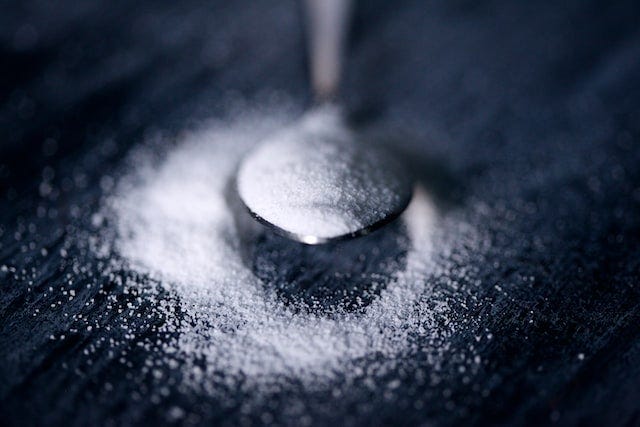Artificial Sweeteners: The Hidden Risks to Gut Health
Written on
Chapter 1: The Impact of Artificial Sweeteners
Recent investigations have shown that artificial sweeteners such as aspartame, saccharin, stevia, and sucralose can significantly alter gut microbiota, leading to concerning health implications.

Our society's love for sugar has become a double-edged sword, contributing to a global health crisis. According to the World Health Organization (WHO), obesity rates have nearly tripled since 1975, with approximately 39% of adults (1.9 billion) categorized as overweight and 13% (650 million) as obese. Alarmingly, 340 million children aged five and above are also affected, with 39 million under five being significantly overweight. This excessive sugar intake is linked to several health issues, including hyperglycemia, type 2 diabetes, and cardiovascular diseases, which can shorten life expectancy. The primary culprit? A diet rich in sugar.
In search of healthier alternatives, many people have turned to artificial sweeteners or non-nutritive sweeteners (NNS) such as aspartame, saccharin, stevia, and sucralose. These options are appealing due to their calorie-free nature. Since the accidental discovery of saccharin in 1879, artificial sweeteners were presumed to be harmless to the human body. However, emerging research challenges this assumption.
A recent study published in the journal Cell explored the effects of artificial sweeteners on a group of 120 individuals who rarely consumed these products. Over two weeks, most participants were given small amounts of artificial sweeteners. The study divided them into six groups: two control groups received placebos, while four experimental groups were given the sweeteners. The findings raised questions about the safety of these substances.
The researchers found that the consumption of artificial sweeteners significantly altered both the intestinal and oral microbiomes in the test groups. These changes were expected given the chemical diversity of the sweeteners. The microbiome consists of trillions of microorganisms, including bacteria and fungi, that reside in our bodies. While the full extent of their influence on health is not completely understood, a growing body of evidence suggests a healthy microbiome is crucial for overall well-being. Studies have linked microbiome health to conditions such as diabetes, anxiety, obesity, and immune responses. Although the researchers could not definitively connect artificial sweeteners to these outcomes, they warned that the notable alterations in gut microbiota could be detrimental.
Adding to the concern, the study indicated that both saccharin and sucralose adversely affect glycemic response, impairing the body's ability to process blood sugar similarly to individuals with diabetes. Elevated blood sugar levels can lead to severe health issues, including heart disease, kidney failure, and cognitive impairments.
To validate their findings, the researchers transferred microbiome samples from participants to germ-free mice, observing similar responses in the mice as seen in the humans. They concluded, "by performing extensive fecal transplantation of human microbiomes into GF mice, we demonstrate a causal and individualized link between NNS-altered microbiomes and glucose intolerance developing in non-NNS-consuming recipient mice." This strongly suggests that the artificial sweeteners themselves are responsible for these changes, rather than the participants’ unique physiological traits.
Section 1.1: The Ubiquity of Artificial Sweeteners
Artificial sweeteners are pervasive in our food supply, found in products ranging from soft drinks to baked goods. Research indicates that over 50% of children regularly consume these sweeteners. In regions where labeling laws require transparency about sugar and calorie content, these numbers are even higher. Foods marketed as low-calorie or low-sugar typically contain artificial sweeteners to meet consumer taste expectations.
Subsection 1.1.1: The Evolution of Sugar Cravings
Humans have evolved to crave sugar due to its high caloric content, which provides energy. However, modern production and consumption of sugar have spiraled out of control, leading to numerous health challenges. The quest for sugar alternatives may not be the ideal solution, as evidence suggests they too can pose risks.
Chapter 2: Further Insights and Considerations
In the video "New Research Shows Artificial Sweeteners Mess Up Your Gut? | Educational Video | Biolayne," experts delve into the recent findings regarding artificial sweeteners and their impact on gut health.
The video "Are artificial sweeteners bad for your gut microbiome? | Peter Attia & Colleen Cutcliffe" explores the implications of these findings and discusses how they affect our overall health.